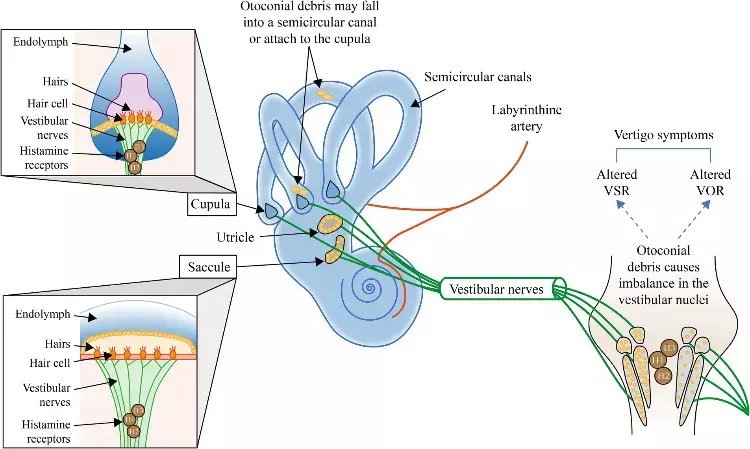- Home
- Medical news & Guidelines
- Anesthesiology
- Cardiology and CTVS
- Critical Care
- Dentistry
- Dermatology
- Diabetes and Endocrinology
- ENT
- Gastroenterology
- Medicine
- Nephrology
- Neurology
- Obstretics-Gynaecology
- Oncology
- Ophthalmology
- Orthopaedics
- Pediatrics-Neonatology
- Psychiatry
- Pulmonology
- Radiology
- Surgery
- Urology
- Laboratory Medicine
- Diet
- Nursing
- Paramedical
- Physiotherapy
- Health news
- Fact Check
- Bone Health Fact Check
- Brain Health Fact Check
- Cancer Related Fact Check
- Child Care Fact Check
- Dental and oral health fact check
- Diabetes and metabolic health fact check
- Diet and Nutrition Fact Check
- Eye and ENT Care Fact Check
- Fitness fact check
- Gut health fact check
- Heart health fact check
- Kidney health fact check
- Medical education fact check
- Men's health fact check
- Respiratory fact check
- Skin and hair care fact check
- Vaccine and Immunization fact check
- Women's health fact check
- AYUSH
- State News
- Andaman and Nicobar Islands
- Andhra Pradesh
- Arunachal Pradesh
- Assam
- Bihar
- Chandigarh
- Chattisgarh
- Dadra and Nagar Haveli
- Daman and Diu
- Delhi
- Goa
- Gujarat
- Haryana
- Himachal Pradesh
- Jammu & Kashmir
- Jharkhand
- Karnataka
- Kerala
- Ladakh
- Lakshadweep
- Madhya Pradesh
- Maharashtra
- Manipur
- Meghalaya
- Mizoram
- Nagaland
- Odisha
- Puducherry
- Punjab
- Rajasthan
- Sikkim
- Tamil Nadu
- Telangana
- Tripura
- Uttar Pradesh
- Uttrakhand
- West Bengal
- Medical Education
- Industry
Diuretics May Impact BPPV Risk Based on Patient History and Drug Class, suggests study

Researchers have found in a new study that all diuretics can influence the risk of benign paroxysmal positional vertigo (BPPV), either positively or negatively, depending on a patient's medical history. These effects appear to be more associated with the overall efficacy of each diuretic class rather than their specific mechanisms of action.
This study aims to characterize diuretic use among patients with and without benign paroxysmal positional vertigo (BPPV) using a population-level database.Subjects with ≥1 hospital visit between 2019 and 2024 were queried and stratified by age (18-44, 45-64, and 65+ years) and sex. Each cohort was then divided into those with/without BPPV. Patients with head trauma, middle/inner ear surgery, central vertigo, or migraine were excluded.
The prevalence of diuretic use and vitamin D deficiency of each case cohort was compared against the control cohort of the same age/sex using Chi-square analysis. This stratification and analysis were repeated for patients with a vestibular disorder, as well as those with/without Ménière's disease (MD).
Results: Diuretic use was significantly more common in case cohorts than in control cohorts in the general population. In vestibular patients, thiazide and carbonic anhydrase inhibitor (CAI) use were more common in control cohorts, and loop use was less common. In MD patients, thiazide and loop use were more common in control cohorts, and CAI use did not differ significantly. In patients without MD, CAI use also did not differ, while thiazide and loop use were less common in control cohorts.
All diuretics may alter the risk of BPPV. Their influences can be favorable or unfavorable, depending on the individual patient's medical history. Their effects might relate more directly to the efficacy of each diuretic class rather than their specific mechanisms of action.
Reference:
Li, M., Chiffer, R.C. and Li, H. (2025), Risk of Benign Paroxysmal Positional Vertigo Modified by Diuretics—A Population-Level Case-Control Study. Otolaryngol Head Neck Surg. https://doi.org/10.1002/ohn.1282
Dr. Shravani Dali has completed her BDS from Pravara institute of medical sciences, loni. Following which she extensively worked in the healthcare sector for 2+ years. She has been actively involved in writing blogs in field of health and wellness. Currently she is pursuing her Masters of public health-health administration from Tata institute of social sciences. She can be contacted at editorial@medicaldialogues.in.
Dr Kamal Kant Kohli-MBBS, DTCD- a chest specialist with more than 30 years of practice and a flair for writing clinical articles, Dr Kamal Kant Kohli joined Medical Dialogues as a Chief Editor of Medical News. Besides writing articles, as an editor, he proofreads and verifies all the medical content published on Medical Dialogues including those coming from journals, studies,medical conferences,guidelines etc. Email: drkohli@medicaldialogues.in. Contact no. 011-43720751


